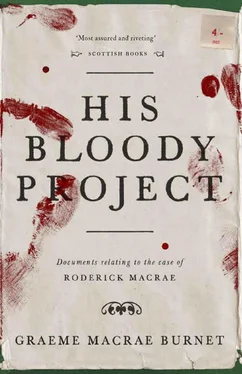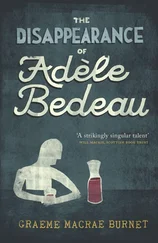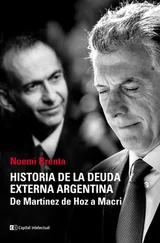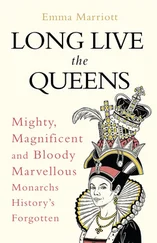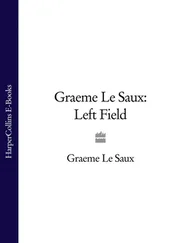‘Superstitious things?’
‘Yes.’
‘And the prisoner?’
‘He seemed to withdraw into himself.’
‘Could you explain what you mean?’
Mrs Murchison looked towards the bench, as if for some assistance. The Lord Justice-Clerk indicated with a gesture of his hand that she should continue.
‘I am not sure I can properly explain it,’ she said. ‘Only that perhaps Roddy sometimes seemed quite separate from the world.’
‘“Quite separate from the world”,’ Mr Sinclair repeated meaningfully. ‘And this change,’ he went on, ‘took place after his mother’s death?’
‘I believe so.’
‘Did you ever observe in the prisoner any signs of insanity?’
‘I do not know if it is a sign of insanity, but I now and again saw him talking to himself.’
‘In what manner?’
‘Quite as if he was in conversation with himself or with an unseen person.’
‘When did you see this?’
‘Often, when he was working on the croft or walking through the village.’
‘And what was the substance of these conversations?’
‘I could not say. If you drew near, he would cease.’
‘Did you ever hear him raving or behaving as if under some delusion?’
‘No.’
‘Did you ever hear of him being restrained because he was a danger to himself or to others?’
‘No.’
‘You did not feel that he was a dangerous character?’
‘No.’
‘He was not thought in the village to be a dangerous character?’
‘I don’t believe so.’
‘So it was a surprise to you when he carried out the acts which have brought us to this court-room today?’
‘Oh mercy, yes, a terrible shock,’ replied Mrs Murchison.
‘So these acts were quite out of character?’
‘I would say so, yes.’
Mr Sinclair then thanked the witness and concluded his questioning. Before Carmina Smoke could step down, the Solicitor-General rose for a second time.
‘If I might clarify one point,’ he began, ‘on the morning of the murders, did you see the prisoner engaged in this mumbling to himself?’
‘No, sir.’
‘And when you conversed with him did he seem quite rational?’
‘Perfectly rational, yes.’
‘He did not — and this is a point of utmost importance — appear alienated from his reason?’
‘I don’t believe so.’
‘It is not, if you will forgive me, a matter of “belief”, Mrs Murchison. Either he did or he didn’t.’
At this the Lord Justice-Clerk intervened, stating that the witness had answered the question in a satisfactory manner and it was not for the Crown to badger witnesses into providing the responses he desired. Mr Gifford begged the judge’s pardon and Mrs Murchison was excused, ‘with the gentlemen of the jury,’ Mr Philby noted, ‘closely observing her exit.’
The next witness to be called was Kenny Smoke. Led by Mr Gifford, Mr Murchison described the events of the morning of the 10th of August. He confirmed that the prisoner had been quite calm, had openly admitted to his deeds and had offered neither resistance nor made any attempt to flee.
Mr Gifford then asked him to describe the scene he had discovered in the home of Lachlan Mackenzie. At this point, according to Mr Murdoch, the court-room assumed a most sombre atmosphere: ‘Mr Murchison, a most vigorous and hearty fellow, visibly struggled to describe the horrors to which he had been witness, and he is to be commended for the sober account with which he was able to provide the court.’
‘Lachlan Mackenzie’s body,’ Mr Murchison testified, ‘was face down on the floor somewhat to the left of the door. The back of his head was entirely shattered and pieces of skull had been strewn some distance from the body. His brains had spilled out to the side of his head. His face lay in a great pool of blood. I lifted his wrist to see if there was a pulse, but there was none.’
Mr Gifford: ‘Was the body warm?’
‘Quite warm, yes.’
‘And then?’
‘I stood up and then saw the boy lying on the floor between the door and the window. I went to him. I did not see any signs of injury, but he was dead.’
‘The body was warm?’
‘Yes.’
‘And then?’
‘I saw the body of Flora Mackenzie laid out on the table.’
‘You say, “laid out”. Was it your impression that the body had been placed there quite purposefully?’
‘It did not appear that she had fallen there.’
‘Why do you say that?’
Mr Murchison here hesitated for some moments. ‘It was not a natural posture. Her feet did not reach the ground and I thought that she must have been lifted onto the table.’
‘Please describe, if you can, what you saw.’
‘There was a great deal of blood. Her skirts had been lifted up and the private parts had been mutilated. I examined her for signs of life, but she was quite dead. It was then that I noticed that the back of her head had been opened up. I pulled down her skirts to cover her decency.’
‘What did you do then?’
‘I went to the door, thinking to prevent anyone else from entering.’
Mr Murchison then described the arrangements made to remove the bodies to the outbuilding and how in the process of this, Catherine Mackenzie, the mother of the deceased, had been discovered in the gloom at the back of the room. She was taken to the Murchisons’ house, ‘quite gone in the head’, and attended by his wife.
Mr Gifford then moved onto the motives for the murders. Kenneth Murchison described the meeting at which the compensation for the killing of Lachlan Mackenzie’s sheep had been decided.
Mr Gifford: ‘And this was in the amount of thirty-five shillings?’
Mr Murchison: ‘Yes.’
‘Why was this sum settled on?’
‘It was the price that the animal would have fetched at market.’
‘And was it the deceased, Mr Mackenzie, who demanded this sum?’
‘The sum was proposed by Calum Finlayson, who was at that time serving as constable for our villages.’
‘Did Mr Mackenzie agree to this sum?’
‘He did.’
‘And Mr Macrae, the prisoner’s father, also agreed to this sum?’
‘Yes.’
‘And did Mr Mackenzie demand that this sum be paid immediately?’
‘No.’
‘What arrangements were made for the payment of this compensation?’
‘It was agreed that the sum would be paid at a rate of one shilling per week.’
‘This out of consideration for the straitened financial situation of the Macrae family?’
‘Yes.’
‘And did Mr Macrae fulfil his obligations with regard to these payments?’
‘I believe he attempted to do so, but it may be that they were not made regularly.’
The Lord Justice-Clerk: ‘Do you know if the payments were made or not?’
‘I do not know, but I know that Mr Macrae did not have a great deal of income and that the payments would have been quite burdensome.’
Mr Gifford continued: ‘But the arrangement was reached amicably?’
‘I would not call it amicable.’
‘But you have stated that both Mr Macrae and Mr Mackenzie accepted the proposal of the constable.’
‘It was accepted, yes, but Lachlan Broad made it clear that he was not satisfied.’
‘How so?’
‘He thought that there should be some additional punishment of the boy.’
‘The “boy” being the prisoner here?’
‘Yes.’
‘And did he propose what this punishment should consist of?’
‘I cannot recall, but he made it clear that he would like to see the boy punished.’
‘Even although the compensation agreed upon was acceptable to both sides?’
‘Yes.’
Mr Gifford here paused and raised his eyebrows in a questioning manner, but the witness did not add anything.
Читать дальше
